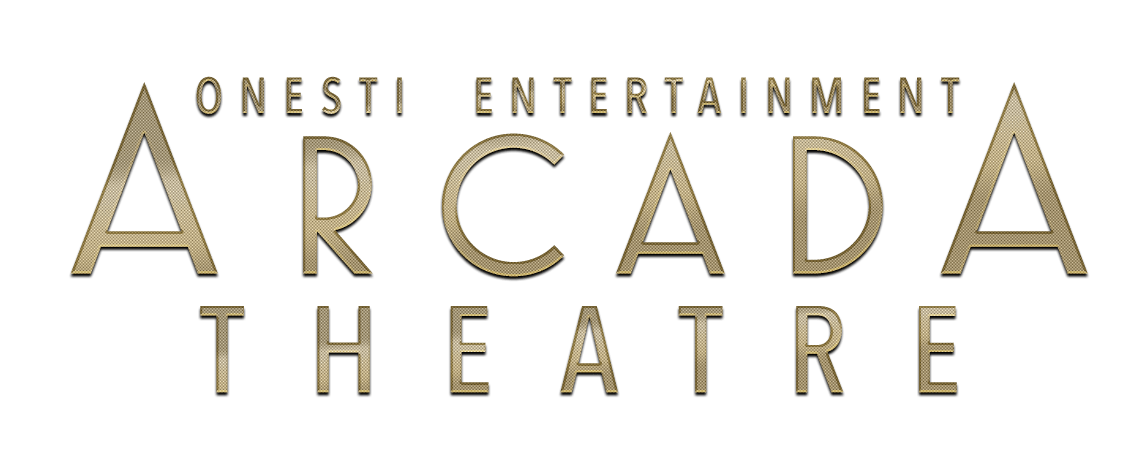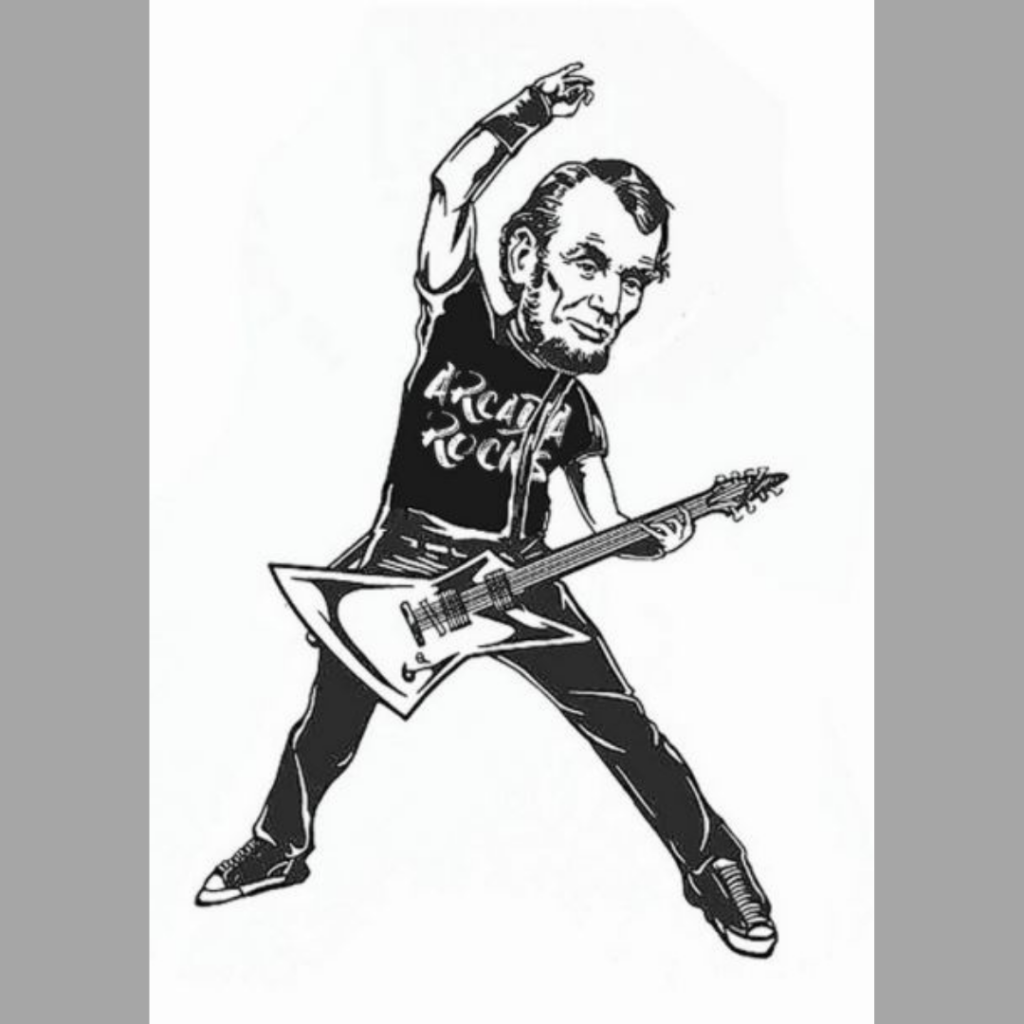Ron Onesti: Was Abraham Lincoln a rocker?
My “Backstage with Ron Onesti” column is usually about my behind-the-scenes experiences with entertainers combined with a bit of education and a little twist at the end. This foray into an American time machine has a different spin on my usual approach, but I thought it would be somewhat interesting and definitely timely…stay with me, here goes!
With Abraham Lincoln’s birthday just ahead us, I thought I would re-tell a story I wrote in April of 2015. It was the one hundred fiftieth anniversary of the assassination of President Abraham Lincoln. He was shot by John Wilkes Booth at Ford’s Theatre in Washington, D.C. on Good Friday, April 14, 1865. So exactly one hundred fifty years later to the day, I decided to pack a bag, take my ten-year-old daughter by the hand and make the three-hour drive south to our state capitol in Springfield, Illinois, and the final resting place of our sixteenth president. As I was driving and we were jamming to the usual classic rock station, I wondered if “Honest Abe” was a music fan and what kind of music he may have listened to, so I focused my attention to all things music, as we toured his home and the Lincoln Museum.
Short answer? If he were alive today, he’d probably be one of my best (and tallest) customers at The Arcada! And beards are back in style now (I think)!
To put it into perspective, Beethoven was kickin’ out the hits when Lincoln was born in 1809. But being that he was born in Kentucky, the works of Beethoven and Mozart probably wasn’t on the local pop charts. Ironically though, Lincoln came to be a great lover of the opera. He fancied Mozart especially. There were even times when he left wartime meetings to attend an opera, much to the dislike of his contemporaries!
He was also a fan and a friend of Stephen Foster, the composer dubbed “The Father of American Music.” His patriotic salute to Americana was all encompassing in the North for the Union Yankees and the South for the Confederates. “Oh! Susanna” “Camptown Races” and “My Old Kentucky Home” were ones he really loved to “hum” to. I thought those songs were written for the “Looney Tunes’ cartoons!
Lincoln could not sing at all (could you imagine Abe at a Civil War Karaoke bar?), and was a big fan of poetry. Music for him was “poetry joined together by musical notes.” He was known to regularly stop to listen to music coming from the window of his neighbors’ houses on his walk home. I mean this guy was a true music fan!
He asked musicians to accompany him on his long train rides, and often avoided crowds assembled looking for him to speak by asking small bands to perform instead. I would classify him as one of America’s first music promoters!
The White House was surrounded by music. Every Wednesday and Saturday night, the 32-member Marine Band serenaded the public. The President regularly invited musicians and vocalists into the house or onto the grounds to perform, particularly talented children, of whom he always had a special fondness. Even Mary Todd Lincoln, who met Abe at a dance, was a huge supporter of music. “The Mary Lincoln Polka” was written exclusively for one of her events at the White House, and she, on many occasions, would join in the fun with her kids on the grounds.
Lincoln was a big fan of Minstrel Shows, the type of entertainment that featured the common-for-the- day “Blackface” performers. He would stop by the homes of “freed men of color” just to hear their renditions of songs particular to their plight. “Nobody Knows The Trouble I’ve Seen” was a common “R&B” hit of the day, along with several church hymns he enjoyed.
As my daughter and I sat in a mock “Ford’s Theatre” in the Lincoln Museum, we experienced a special re-enactment of what occurred between the theatre staff and actors the evening of the assassination. I found out that Mr. Lincoln enjoyed the theatre regularly, sneaking in and sitting in the back, in the dark, all by himself. It was truly one of his favorite things to do to take his mind off of the perils of the day.
One of the most interesting things my daughter and I learned about music of that time involved the song (I Wish I Were In) Dixie. It was clearly one of Lincoln’s all-time favorites (that, Yankee Doodle and When Johnny Comes Marching Home, which regularly brought Lincoln to tears). The song was made popular in the 1850s minstrel shows that Lincoln enjoyed so much, and was actually written in the North! He liked it so much that he made it a theme song for his 1860 presidential campaign. When the Civil War broke out, the song became a direct reference to the eleven southern states that seceded the union and represented the Confederacy as its battle cry. Despite that, Lincoln continued to request the song throughout the war and made a statement by ordering it played while General Robert E. Lee surrendered to Ulysses S. Grant at Appomattox. It was an immediate gesture by Lincoln to welcome back the Southerners in an effort to re-unite the country.
Five days later, Lincoln was mortally wounded by Confederate sympathizer John Wilkes Booth, America’s most famous actor of the time, and one Lincoln went to see perform on numerous occasions (I didn’t know that almost the entire Ford family and many theatre staff members were jailed for weeks as the common thought of the day was that they were all co-conspirators!).
All around the museum were references to the toll the war as well as the loss of his three young sons to illnesses took on the President, as evidenced by his drawn face in progressive photos of him. It was also stated by his wife, Mary that the only thing that pleased him during that time was music and theatre. In fact, with the ending of the war, she had noticed a sense of relief on the President’s face as he laughed at Ford’s Theatre that night.
Was it irony, or was it divine intervention that Lincoln’s life was ended at the very place of music and theatre that brought him solace during his most difficult times? Knowing this side of him, the side that made his top hat bob to the music, I feel a slight sense of comfort now. I know the last couple hours of his life was spent in a good place as he enjoyed a live performance. And as my beautifully innocent daughter looks at me and asked why such a great man would be assassinated, I merely suggested that we focus on the good he did and how music helped him get through his challenges. Seventy score, and fourteen years ago, we lost a giant of a man, a great president, and for me, history’s first Rock and Roller.

